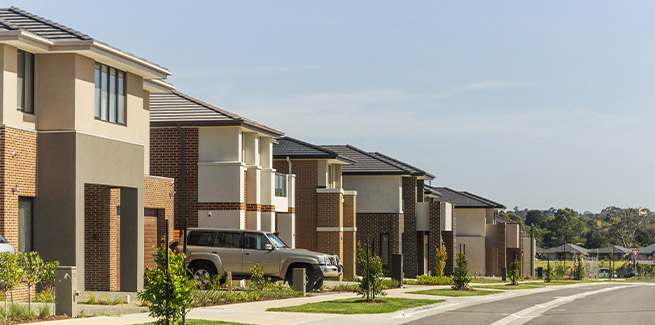The Housing Industry Association (HIA) has taken further steps to encourage political involvement in housing affordability and access, releasing nine imperatives intended for “all sides of politics” to adopt prior to the imminent 2022 federal election.
These imperatives, which are included in the industry body’s Federal Election Imperatives – Home Ownership Matters, consist of measures related to affordability, supply and access, such as unlocking land supply, increasing access to rental housing, and growing the supply of both social and community housing.
HIA managing director Graham Wolfe said that the release of the initiative “clearly communicates the issues and policies that HIA believes are vital to advancing the supply of housing for all Australians”.
“This year’s election imperatives remain focused on ‘home ownership’. Home ownership matters – it is the basis of a stable household and a stable economy,” he commented.
According to Mr Wolfe, internal HIA research suggests that “75 per cent of Australians believe everyday Australians should be able to own their own home”, and that only 42 per cent of non-home owners believe they will be able to ever purchase property.
According to data released by the OECD last year, Australia had the third-highest mortgage cost burden out of the 38 member countries, coming in at 20.3 per cent.
However, the Real Estate Institute of Australia (REIA)’s latest Housing Affordability Report puts this income-to-mortgage ratio at a higher figure, suggesting that, in December, borrowers had spent an average of 37 per cent of their incomes to meet loan repayments.
Research published by Domain in late January stated that the median price for a house in an Australian capital city is now over $1 million, reflecting a year-on-year growth of over 25 per cent.
Mr Wolfe later said that the HIA believes that “a sense of stability and security” is provided to those who own property, noting that this later “translates to a more stable and productive society”.
“A fundamental and long held imperative for [HIA] is to have a Minister for Housing elevated into cabinet,” he added.
“Housing is critical to Australian society and housing issues must be given the prominence that they deserve.”
Mr Wolfe also stipulated that the challenges facing Australians could only be addressed if the “supply of housing can align with demand”.
“HIA estimates that we will have to build 1.66 million houses by 2030 just to keep up with the demand from population growth,” he said.
The HIA has previously suggested that one measure that could increase supply, as well as combating unaffordability, is the extension of the First Home Loan Deposit Scheme (FHLDS), which it highlighted in its pre-budget submission to the federal government in January.
The position was shared by REIA, which called for an expanded FHLDS and First Home Super Saver Scheme in its pre-budget submission as a means to assist first home buyers and unlock supply.
REIA president Hayden Groves said at the time that there was a “need for governments to address both housing supply and affordability for first-home buyers”.
In early February, Prime Minister Scott Morrison said that while his government can’t control house prices, it is attempting to get more Australians in homes.
“On home ownership, it’s always hard to buy your first home. It’s terribly hard and particularly in the city, in Sydney. I remember it. Jen and I remember it ourselves,” Mr Morrison said.
“It’s hard and it’s still hard and – I’d argue – even harder. And that’s why at the last election we came up with, I think, some very effective programmes.
“We can’t manage what happens to house prices, but we can help people get into homes. And our Government has helped 300,000 Australians to get into homes.”
[Related: Correction in housing expected: Former treasurer Peter Costello]
